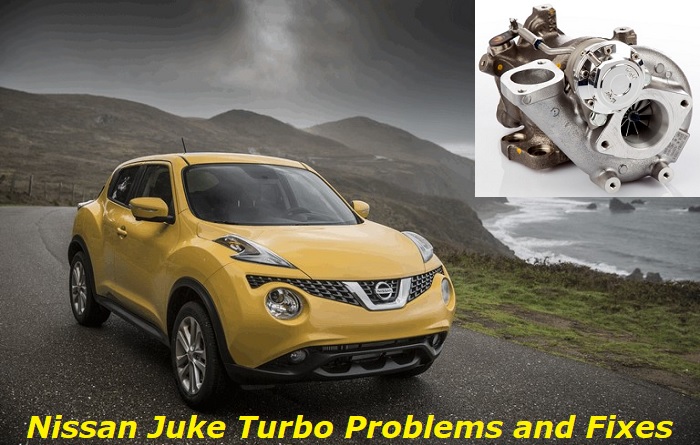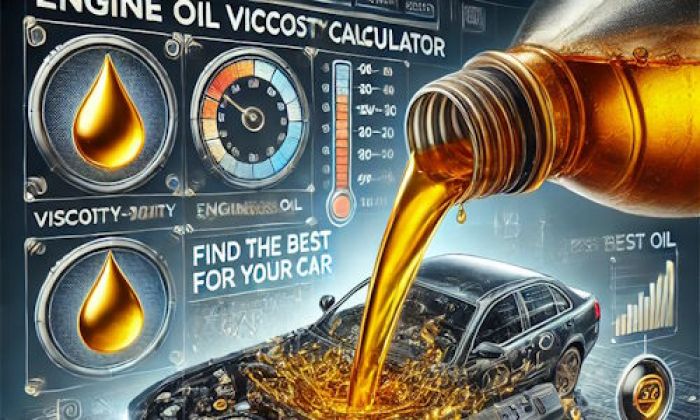If you're looking for a fun, stylish, and practical vehicle, the Nissan Juke makes an excellent choice. However, just like any car, it has problems tied up with it. In this article, we will take a particular look at the turbo-related problems of the vehicle to help you find the best solution for them right away if you end up encountering them.
Key features and my opinion about the Turbo engine
- Production years:2017-now
- Average lifespan of HR13DDT:120,000-150,000 miles
- Fuel supply type:direct injection
- Power range:140-160 hp
- Fuel efficiency:excellent
- Engine block material:aluminum
- Engine reliability score:medium
- The most common problems:carbon buildup on intake valves, glitchy start-stop, timing chain stretching, unreliable turbocharger pipes.

Symptoms of Common Turbocharger Problems in the Nissan Juke
There are red flags you should watch out for that may pertain to a turbocharger problem in your Nissan Juke, these are:
1. Engine Misfire
When the combustion reaction doesn't go as it should and your cylinder doesn't fire, you have an engine misfire. This happens when an engine first starts up as well as when it is still idling. Your engine may suddenly falter and possibly lose speed when a misfire occurs.
2. Performance Loss
Your auto may appear to struggle in gaining or maintaining its speed while being driven even if you are pressing harder on the accelerator.
3. Decrease in Fuel Economy
If you find your vehicle chugging more fuel than usual even on short drives, this is another red flag.
4. Engine Stalling
When your automobile stalls, the engine has ceased its operations or has broken down.
5. Oil Streaks and Leaks
You may notice oil residue coming from your turbocharger or areas near it. The ground directly beneath your engine bay may also show signs of oil drippings.
6. Noisy Engine
If your engine is noisier than usual, better pop up the hood to locate where it is coming from. The sounds may range from knocking, rattling, whirring, or whining noises.
7. Check Engine Light On
The dreaded Check Engine Light is on coupled with one or a combination of the other symptoms discussed here.
8. Rise in Temperature
You will get a warning in your car's instrument cluster coupled with a hot smell coming from your air conditioning vents, steam coming from your hood, and the other symptoms in this list.
Diagnosis and Solutions to the Most Common Nissan Juke Turbo Problems
If you notice something wrong with your car, don't wait until it becomes a bigger problem. Try to diagnose the source of the issue as soon as possible so you can take care of it before it turns into a more serious and expensive problem.
Having an idea of how to diagnose the cause of the problem of your vehicle before bringing it for repairs can have plenty of benefits for you. It can help you save on expensive repairs. It also allows you to explain the problem in detail to your mechanic, which makes it easier and faster for them to find a solution.
There may be other factors resulting in the symptoms you are experiencing with your auto but if you are looking at turbo-related problems, here are the common culprits:
1. Dirty or Clogged Turbo
If your Nissan Juke's turbocharger is dirty or clogged, the most common symptom of it is loss of power while driving. You may also notice a decrease in fuel economy and an increase in engine noise.
There are plenty of ways to diagnose the problem. Start by checking for dirt build-up in your air filter. Next, check the turbocharger for any debris clogging its connections. After that, have your mechanic check the turbocharger for any leaks or damage.
There are a few possible solutions for a dirty or clogged turbocharger. First, the turbocharger can be cleaned with compressed air or a turbocharger cleaning kit. If that doesn't work, you may need to change the turbocharger entirely. Lastly, if your turbocharger is damaged, you will need to replace it.
If you think your Nissan Juke's turbocharger is dirty or clogged, be sure to take it to a mechanic for diagnosis and repair. Trying to clean or repair a turbocharger yourself can be dangerous and may void your warranty.
2. Actuator Failure
Actuator failure in the turbocharger is a common problem in Nissan Jukes. The most common symptom of this problem is a loss of power when accelerating. Other symptoms can include engine hesitations, stalling, and misfires.
There are several possible causes of actuator failure in the turbocharger. One possibility is that the wastegate actuator rod has become disconnected from the wastegate arm. Another is that the wastegate actuator itself has failed.
There are several possible solutions for actuator failure in the turbocharger. One solution is to reconnect the wastegate actuator rod to the wastegate arm. Another solution is to replace the wastegate actuator itself. Yet another solution is to install a new turbocharger.
3. Turbo Leaks
There are several common symptoms associated with leaks in the turbocharger of a Nissan Juke. These include a loss of power, increased engine noise, and a decrease in fuel efficiency. In some cases, the engine may even stall.
To diagnose the cause of these symptoms, a mechanic will first check for any obvious signs of leaks. This includes inspecting the turbocharger itself for any cracks or damage. They will also check all of the hoses and pipes leading to and from the turbocharger for any leakages.
Once any leaks are repaired by replacing the hose, pipes, and sealants, the mechanic will then test the turbocharger to see if it is functioning properly. If not, they may have to replace the turbo with a new one.
4. Bearing Damage
If you notice your Nissan Juke making strange noises or vibrating more than usual, it could be a sign that the bearings in your turbocharger are damaged. One of the most common symptoms of damaged turbocharger bearings is increased engine vibration. This is usually caused by the impeller blades hitting the housing as they spin. Another common symptom of damaged turbocharger bearings is reduced boost pressure.
If you suspect that the bearings in your turbocharger are damaged, the first step is to check for signs of physical damage. If you see any cracks or other damage to the bearing housing, it's likely that the bearings are damaged and need to be replaced.
Once you've confirmed that the bearings are indeed damaged, you'll need to decide whether to repair or replace them. If the damage is minor, you may be able to have the bearings repaired using a special tool. However, if the damage is more severe, you'll likely need to replace the entire turbocharger.
No matter which route you choose, it's important to have a professional look at your turbocharger before attempting any repairs. Attempting to repair or replace the bearings yourself can be dangerous and may void your warranty.
If you notice any of the symptoms mentioned above, it's important to have your turbocharger checked by a professional as soon as possible. By doing so, you can avoid further damage to your engine and ensure that your Juke continues to perform at its best.
5. Overheating
Overheating is the worst problem you can experience with your turbocharger because it may be a sign of worse things to come. If your Nissan Juke is experiencing symptoms such as loss of power, unusual engine noise, "Check Engine Light" on, and smoke coming from the hood. You must immediately turn off your engine after parking your vehicle properly before proceeding.
Assuming you have parked your vehicle properly and you have already allowed its engine to cool down, the first thing you should do is check the oil level. If the oil level is low, this can cause the turbocharger to overheat. You should also check for leaks in the turbocharger system. If there are any leaks, they need to be repaired as soon as possible. Finally, make sure that the cooling system is working properly and that there is enough coolant in the system.
If the turbocharger is overheating, it is important to diagnose the cause of the problem and find a solution as soon as possible. Otherwise, the turbocharger could be damaged beyond repair and need to be replaced. This can be a costly repair, so it is best to avoid it if at all possible. The worst thing that could happen to an overheating engine bay is it may result to fire.
How to Prevent the Common Turbo Problems in the Nissan Juke
There are a few things that you can do to prevent all sorts of problems with your turbocharger. First, make sure that you change the oil and filter regularly. This will help to remove any debris or buildup that could clog the turbocharger. Second, avoid running your engine at high speeds for extended periods. This can put excessive stress on the turbocharger and cause it to fail. Finally, have your turbocharger inspected regularly by a qualified mechanic.
If you do experience any of the symptoms here, it is important to have it looked at by a professional mechanic as soon as possible. Ignoring the problem could lead to more serious issues, such as engine damage. With proper care and maintenance, your turbocharger should provide years of trouble-free service.
About the authors
The CarAraC research team is composed of seasoned auto mechanics and automotive industry professionals, including individuals with advanced degrees and certifications in their field. Our team members boast prestigious credentials, reflecting their extensive knowledge and skills. These qualifications include: IMI: Institute of the Motor Industry, ASE-Certified Master Automobile Technicians; Coventry University, Graduate of MA in Automotive Journalism; Politecnico di Torino, Italy, MS Automotive Engineering; Ss. Cyril and Methodius University in Skopje, Mechanical University in Skopje; TOC Automotive College; DHA Suffa University, Department of Mechanical Engineering






Add comment